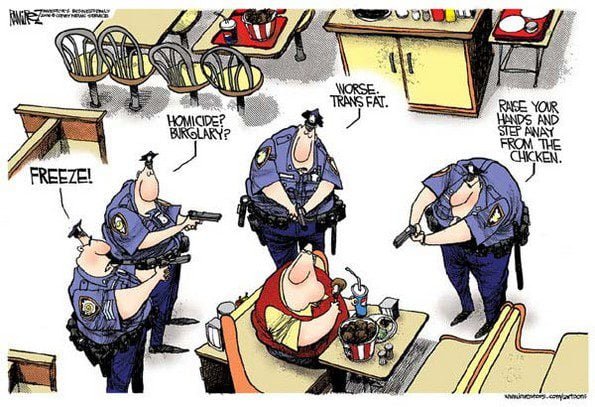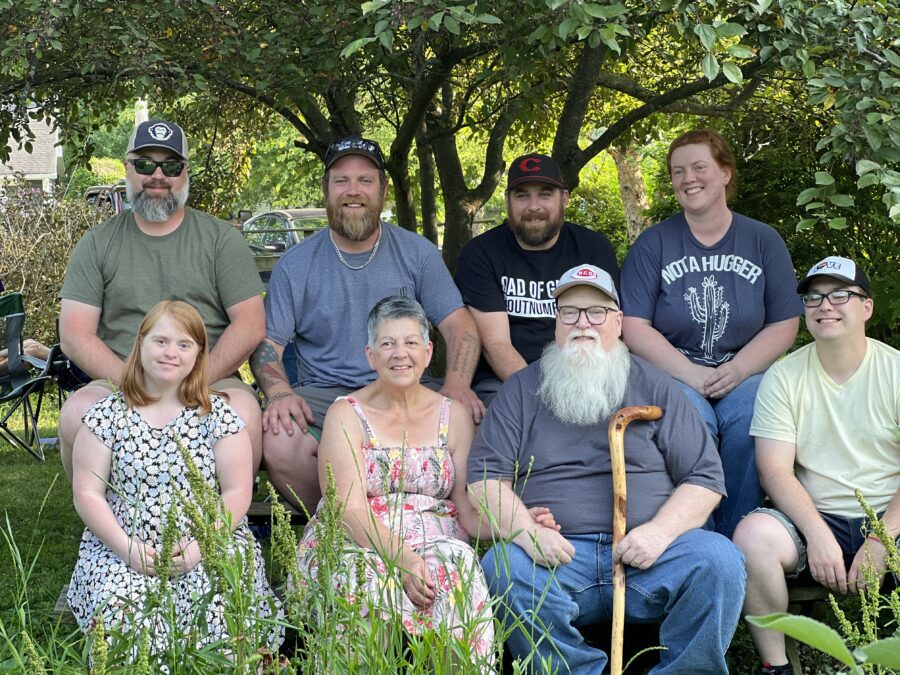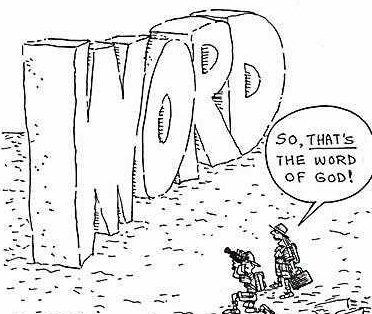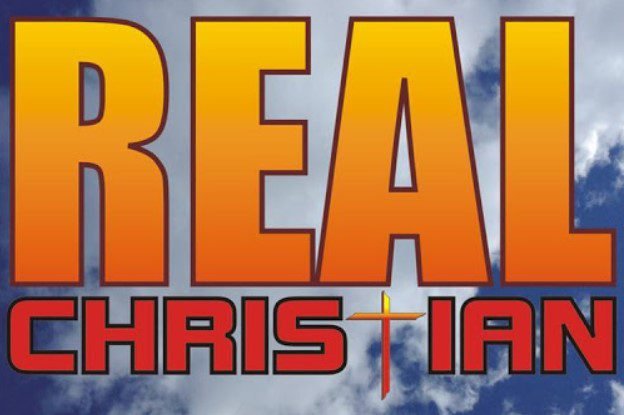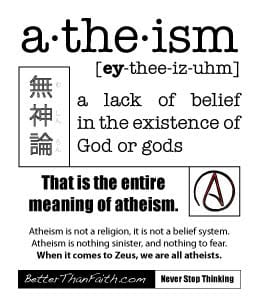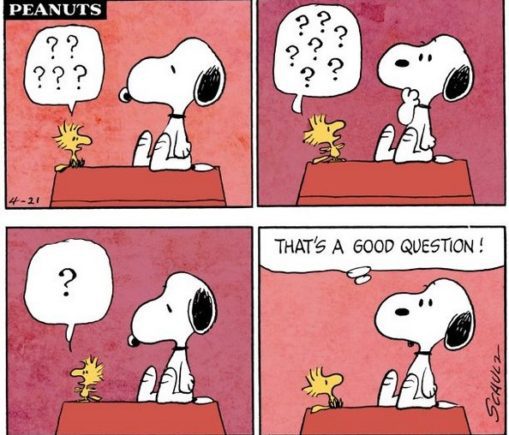
Repost from 2018. Updated. All spelling, grammar, and punctuation in the original.
Rarely does a day go by that an Evangelical zealot doesn’t either send me an email or leave a comment on one or more posts. In 2018, Steve Ransom/Ransomovitch (a fake name, I believe) started leaving comments on a post about disgraced Evangelical pastor Bill Hybels. Ransom, a Brit, has been leaving comments and sending me emails for the better part of six years. I have banned him several times, but, like a bad penny, he keeps coming back. Here’s what he had to say this time:
- Yeah yeah, I can just picture Bruce – saliva in his beard, gleefully chasing down the church pedos and sex gangsters, who exist everywhere in society, as if any of this adds any weight to his fatuous railings against our God. Bill Hybels and Bruce Gerenscer alike will stand before God to give account for their godlessness and BG particularly will be found wanting
- I findl it interesting you are going after your Creator and using shock jorror sexual abuse in the church as your ‘weapon of mass distraction.’ Ooooh! What a shocking scoop. Your cultic followers will of course generously applaud your word salad on this subject. They always do. And you can all clap each other on the back and comfort one another that hete’s another ‘hateful christian’ who didn’t show Bwucie any luuuurve. What you forget you snake is that although there are so many people deserving grace and investment, you however are one of the vipers Jesus cursed, stating your father is the father of lies. But eulogise on Bruce, you WILL meet your Maker
- nothing like a few home truths to brng dwn the drawbridge on freedom of speech. youre a fake and a fraud and a sad little man all rolled into one, ‘i’ll not approve any more comments from you.’ hahahaha oh dear what will your sycophant disciples think of that, hahahaha
- haha about time your inactive site saw a flurry of activity. fancy that bruce, denying me a voice ( not that i care, i really don’t) but posting up some exchanges from 2015, i repeat, youre a sad old man with a legacy of depressive memories, ruing certain decisions youve made in your life and hiding away in the woods with only your internet for a friend, and posting only those godless posts that stroke you in all the right places, have another warm night bruce
You can read Ransom’s comments in context and my responses here.
Ransom also sent me two emails:
- Ouch im cut to the quick bruce, your pathetic approach is soo transparent
Bye - please bruce, show the whole thread why dont you, let it be an advert for you. how you and your cohorts are so right about everything, youre a sad little man bruce
I have no idea what “thread” he is talking about. I have received two emails from Ransom, that’s it.
In 2015 and 2017, I wrote about Ransom:
- Steve Ransomovitch Lays Down a Challenge to Bruce and His Fellow Atheists
- Steve Ransom Stops By to Show Me Some Love
I am clueless regarding what Ransom hopes to achieve by leaving nasty comments about me and the readers of this blog. I should just cut him off for good, but I find that his comments advance a greater good; that of showing how some Evangelicals view people different from themselves. Ransom is also a reminder of the fact that Britain has its own virulent brand of Evangelicalism. I suggested to Ransom that he should get together fellow Evangelical zealot Susan-Anne White. They are, indeed, two peas in a pod; kindred spirits who “love” Jesus and despise anyone who doesn’t believe as they do — especially atheists, agnostics, and liberal Christians. Both of them also have an out-sized preoccupation and obsession with male anal sex.
If you are not familiar with Ms. White, check out the following posts:
- The Infamous Fundamentalist Susan-Anne White Has Given Up on Blogging
- Susan-Anne White Thinks I’m a Despicable, Obnoxious, Militant, Hateful Atheist
- British Fundamentalist Susan-Anne White’s List of Politically Correct Words
- The BRCA1 and BRCA2 Gene: Susan-Anne White Condemns Women Who Have Preemptive Surgery
Evangelical Rob Schouten, pastor of Aldergrove Canadian Reformed Church in Aldergrove, British Columbia, left the following comment on the post, 16 Reasons Why I am Not a Christian:
Just started to read some stuff on your site. It’s sad, really, to see how you’ve abandoned the way of faith, especially when your reasons are so hackneyed. I don’t wish to debate with you since you seem to have a closed mind. However, I thought I’d let you know that to well-educated Christians who have been exposed to the acid of critical scholarship and yet have continued in the faith, your arguments seem quite childish. Suffice it to say that your website breaks no new ground and that all of your points have adequate answers in evangelical scholarship. You just don’t seem to want to hear them anymore because you have made a decision to reject Jesus. Beyond the intellectual excuses, I wonder what the real reasons are.
I responded:
*sigh* You read four posts before leaving this comment.
Believe what you will. I know the intellectual reasons why I left Christianity.
No amount of Evangelical turd polishing will change my mind. Evangelicals haven’t had an original thought/argument in decades. What argument could you possibly give that I haven’t heard before?
You are free to make whatever judgments you wish about my past and present life. That is the nature of blogging, I have to deal with people such as yourself. I limit exposure to such inane bullshit by limiting the number of comments zealots can leave . Generally, Evangelicals get one opportunity to share what God has laid on their heart. You had your opportunity, so I hope, bless your heart, you said everything you needed to say.
As for the “real” reasons for my deconversion, I wanted to be porn star, and live a debauched life. I wanted to live in sin. I’m sure that’s want you want to hear. Makes it easier to dismiss me that way.
Any Hoo, thanks for commenting and using your one opportunity to put in a good word for Jesus. I’m sure you’ve made him proud.
Schouten later sent me the following email:
Only four posts? It seemed like forty.
I’ve read this sort of stuff from lots of people over the years.
Seems like all newly-professing atheists are driven to seek to de-convert others.
All so predictable and tiresome.
All in the name of scholarship but without scholarly rigor or depth.
I guess you have to fill your days somehow now that you no longer have any transcendent purpose for your life.
Anyway, it’s way past your bedtime.
Schouten, who read four posts on this site, believes that the reasons I left Christianity lack academic and scholarly rigor. In other words, he has a theological boner and he knows that my flaccid reasons for rejecting the Christian narrative and the authority of the Protestant Christian Bible will never stand up to the critique of such an educated Evangelical porn star as himself. You see, Schouten is a “smart” Evangelical, and if I would just be “smart” like he is, my rejection of Christianity would melt away like butter on a warm summer day and Jesus would once again reign supreme in my life on my whole wheat toast.
Schouten says that my writing breaks no new ground; and that all he sees are predictable and tiresome posts. Since December 2014, I have written 2,713 posts (now 5,464). Schouten has read .00145 percent of my writing, yet he’s skimmed enough to come to the conclusions mentioned above. Perhaps the good pastor should consider Proverbs 18:13: Spouting off before listening to the facts is both shameful and foolish. (NLT)
He’s right about one thing: my critique of Christianity breaks no new ground. How could it since, to quote Solomon, there is nothing new under the sun. Evangelical pastors such as Schouten haven’t had an original thought or broken new ground. Same old skipping record droning on, and on, and on. They continue to preach Jesus, the same yesterday, today, and forever, forgetting the word SAME. As factory workers in this part of the country say, same shit, new day. Oh, these educated giants of the faith read lots of books, but rarely do they venture beyond the safe confines of the Evangelical box. These books, then, are echo chambers that reinforce their Evangelical presuppositions and beliefs. I had, at one time, over a thousand books in my library, most of them of a Calvinistic persuasion. I suspect Schouten, a Reformed Christian, and I have read many of the same theological tomes. Yet, he’s the smart one, and I am the uneducated one. Why? Because I refuse to believe his cult’s myth about a virgin-born deity who walked on water, raised the dead, walked through walls, and healed blindness with spit mixed with dirt? Or I refuse to believe that this deity is one God, yet three; that the third part of the three-n-one lives inside True Christians®; that the first part of the three-n-one killed the second part on a Roman cross, and magically the dead God resurrected three days later? Or I refuse to believe more fantastical claims; when Jesus came back to life, graves opened up and zombies roamed the streets? And then Jesus said “see ya later” and ascended into the clouds, never to be seen again? And he’s the smart one? Child, please!
Schouten fails to understand that this blog is not meant to be a defense of atheism nor is it a white-tower critique of Christianity. Evidently, Schouten didn’t read the name of this blog: The Life and Times of Bruce Gerencser: One Man’s Journey From Eternity to Here. Fundamentally, this blog is me telling my story: an accounting of the fifty years I spent in the Christian church, the twenty-five years I spent as an Evangelical pastor, and my subsequent loss of faith. I am just one man with a story to tell. That thousands of people read my blog and find my writing helpful suggests that my story resonates with people. I could, if I wanted to, start up an academic blog, one where Evangelicals such as Schouten could come and ply their apologetical skills. There are plenty of such blogs for the Schoutens of the world to unzip their theological zipper and expose their Bible prowess for all to see. I have no interest in having such a blog. I have a good understanding of who my target audience is, and these are the people I write for. I give Evangelical zealots just enough rope to hang themselves, providing countless examples of reasons why many of the readers of this blog left Christianity, In Schouten’s case, his words smack of elitism; a common trait among Evangelical Calvinistic pastors. I have corresponded with numerous people who were psychologically harmed by preachers who looked down on them or treated them as if they were stupid. They likely see in Schouten’s arrogance and condescension a reminder of one of the reasons they deconverted. So, to Pastor Schouten I say this: Keep preaching the gospel, bro. Thousands of people will read your comments and emails. You indeed provide a glowing reminder of why many of us are so glad to be free of Christianity (especially your Fundamentalist version, anyway).
I love how Schouten dismisses my life with a wave of his pontifical hand: I guess you have to fill your days somehow now that you no longer have any transcendent purpose for your life. In other words, I have a meaningless, purposeless, empty life without Jesus, so I spend my days turning out atheist propaganda. Little does Schouten know (or care) that atheists can and do have lives of meaning and purpose; that, as humanists, we don’t need God, Christianity, Jesus, the church, or the antiquated, contradictory words of the Bible to make our lives worthwhile.
I am sixty-seven years old. I have been married to a beautiful dark-haired woman for forty-six years. I have six children who are gainfully employed and I have sixteen awesome grandchildren. Four cats too. I have rediscovered the joy of collecting O-gauge post-war Lionel trains. And yes, I write for this blog. You see, my life is filled with wonder, purpose, and meaning, and as long as I have the strength to do so, I plan on living life to its fullest. I don’t have a promise of a divine pay-off; a reserved room in God’s Golden Shower Trump Tower®. All I have is the here and now, the present. This is why I give the following advice on the ABOUT page:
You have one life. There is no heaven or hell. There is no afterlife. You have one life, it’s yours, and what you do with it is what matters most. Love and forgive those who matter to you and ignore those who add nothing to your life. Life is too short to spend time trying to make nice with those who will never make nice with you. Determine who are the people in your life that matter and give your time and devotion to them. Live each and every day to its fullest. You never know when death might come calling. Don’t waste time trying to be a jack of all trades, master of none. Find one or two things you like to do and do them well. Too many people spend way too much time doing things they will never be good at.
Here’s the conclusion of the matter. It’s your life and you best get to living it. Some day, sooner than you think, it will be over. Don’t let your dying days be ones of regret over what might have been.
And with that, I bid these residents of the peanut gallery adieu.
Bruce Gerencser, 68, lives in rural Northwest Ohio with his wife of 47 years. He and his wife have six grown children and sixteen grandchildren. Bruce pastored Evangelical churches for twenty-five years in Ohio, Texas, and Michigan. Bruce left the ministry in 2005, and in 2008 he left Christianity. Bruce is now a humanist and an atheist.
Your comments are welcome and appreciated. All first-time comments are moderated. Please read the commenting rules before commenting.
You can email Bruce via the Contact Form.




